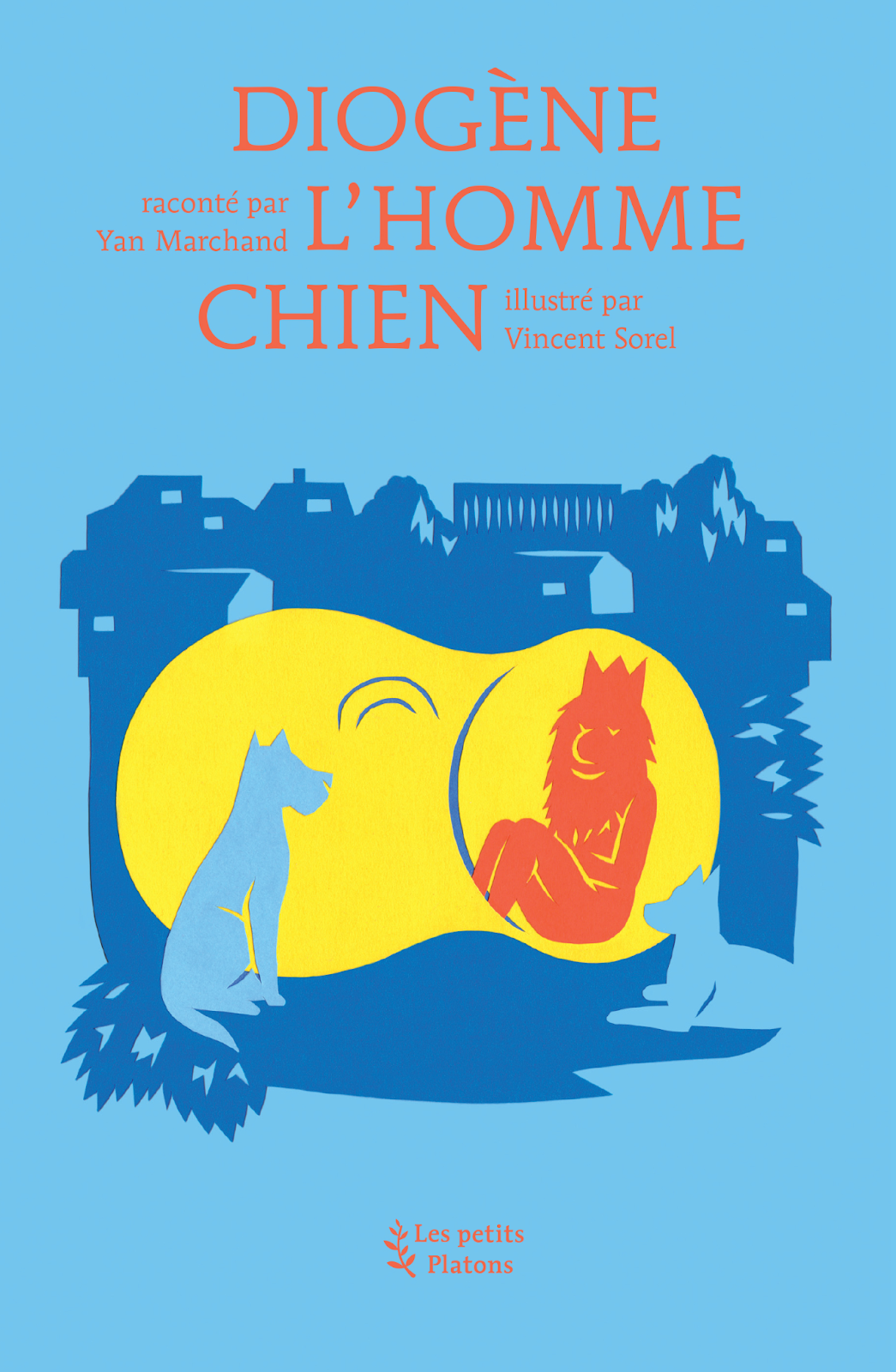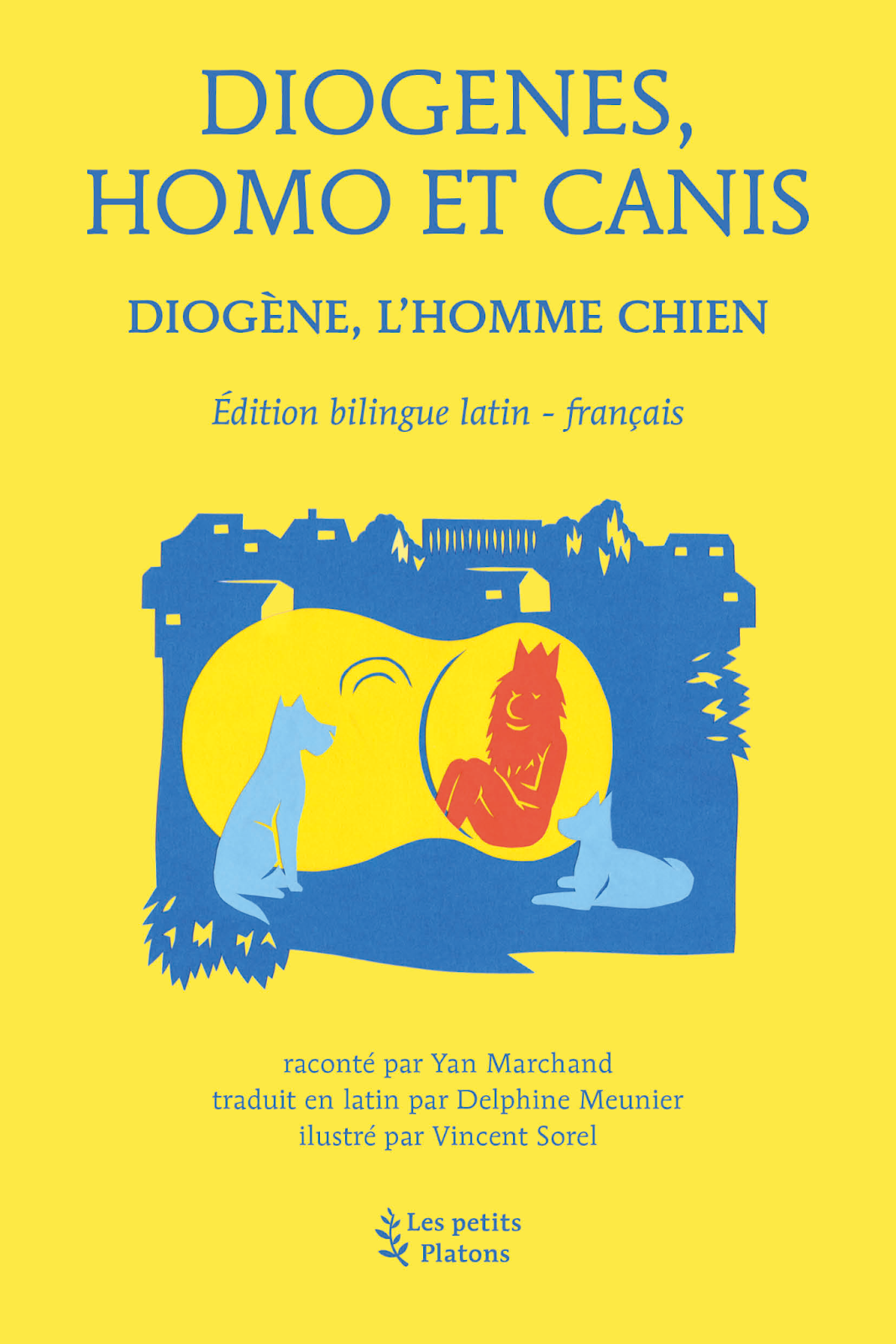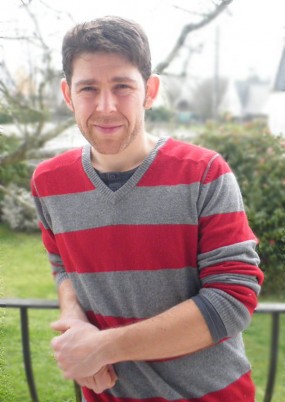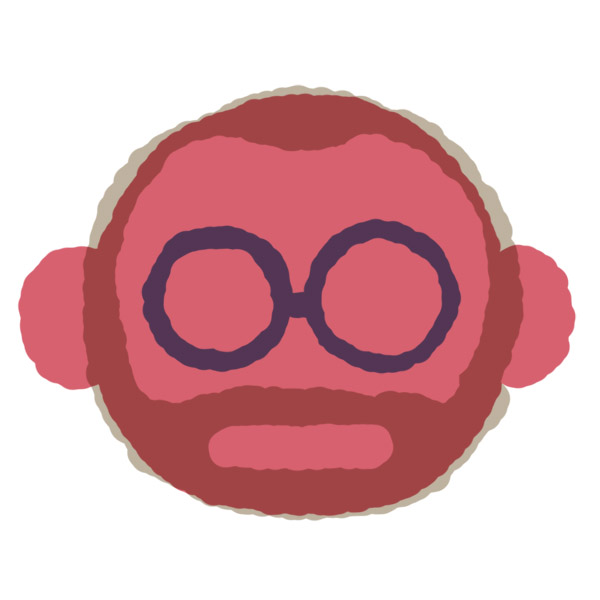Title of the work
Country of the First Edition
Country/countries of popularity
Original Language
First Edition Date
First Edition Details
Yan Marchand, Diogène l’homme chien. Paris: Les Petits Platons, 2012, 64 pp.
ISBN
Official Website
The book’s page on the official website of the publishing house (Accessed: October 19, 2021).
Available Onllne
Available for purchase at the official website of the publishing house (Accessed: October 19, 2021).
Genre
Adaptations
Illustrated works
Philosophical fiction
Short stories
Target Audience
Crossover
Cover

Cover of the first edition (2011).

Cover of the bilingual Latin-French edition (2021).
Courtesy of the Publisher.
Author of the Entry:
Angelina Gerus, University of Warsaw, angelina.gerus@gmail.com
Peer-reviewer of the Entry:
Katarzyna Marciniak, University of Warsaw, kamar@al.uw.edu.pl
Elżbieta Olechowska, University of Warsaw, elzbieta.olechowska@gmail.com

Courtesy of the Author.
Yan Marchand
, b. 1978
(Author)
Yan Marchand, born in 1978, is a writer of books for young adults, based in Brest. Holding a PhD in philosophy from the Université de Rennes 1, he offers philosophy workshops for children and teenagers from 5 up to 17 years. He also runs trainings and lectures for teachers and childcare professionals wishing to incorporate philosophy into their practices. In cooperation with the Paris-based publishing house, “Les petits Platons”, Yan Marchand authored several children's books including Diogène l’homme chien (Diogenes the Dog-Man, 2011), Le rire d’Épicure (The Laughter of Epicurus, 2012), Socrate sort de l’ombre (Socrates Comes out of the Shadows, 2012), La révolte d’Épictète (The Revolt of Epictetus, 2014), Les mystères d'Héraclite (The Mysteries of Heraclitus, 2015), Socrate président ! (Socrates the President !, 2017).
Sources:
Personal webpage (Accessed: October 13, 2021).
lespetitsplatons.com (Accessed: October 13, 2021).
catalogue.bnf.fr (Accessed: October 13, 2021).
idref.fr (Accessed: October 13, 2021).
Bio prepared by Angelina Gerus, University of Warsaw, angelina.gerus@gmail.com
Questionnaire
1. What drew you to working with Greek and Roman philosophy?
— The encounter with Antiquity occurred, as it does for many children, through mythology. Digging to the right, to the left I ran into a book of Sophocles. It fascinated me, and, mixing up pretty much everything at the time, I put all the Ancients in the same basket; so I began to read Aeschylus, Horace, but also Seneca, Lucretius, Epictetus, Plato, not knowing yet that it was philosophy. And that captivated me: finally, books that did not tell stories but proposed ways of living in connection with a better understanding of the world and our finitude.
2. As you have a background in philosophical education holding a PhD in philosophy from the Université de Rennes 1, may you point out any particular books that made an impact on your writings?
— My writings interact with Heraclitus, the pre-Socratics in general and the philosophies of asceticism: cynicism, epicureanism, stoicism mainly. It's hard to point out any books. But more recent authors have influenced my writing, I believe. Heidegger and Levinas. But unfortunately, I cannot suggest a specific title.
3. I have an impression that in your stories the ancient texts are interwoven so closely with new authorial elements that it is sometimes difficult to separate them from each other. What sources are you using? How concerned are you with ‘accuracy’ or ‘fidelity’ to the original?
— There is always the lie of art! Indeed, in writing for the youth there are two often incompatible issues: the exposition of an often complex thought, and the proposal of a motivating narration. Sometimes it is necessary to adjust either the narrative or the exposition of concepts, so that there may arise some inventions which serve the story rather than the history of philosophy, and moments when the story weighs a bit more as it becomes more philosophical. But as far as possible, I create a plausible framework. I work on the biography, the historical and psychological context of the epoch and I try to see in what way the concepts of this or that author could make sense at that time, in that particular context. This gives ideas for plot twists. Therefore I try to be faithful to the century and to the spirit of the philosopher, but sometimes in order to give a bit of energy I can modify a fact without ever inventing it from scratch. It's a bit like a puzzle with a missing piece: I cut a new one but to make it fit, I have to tap on it with a fist.
4. What challenges did you face in selecting, representing, or adapting particular texts or ideas?
— The challenges are often the same: to open a complex world to a reader without boring him. I therefore choose authors who often have a life on which I can base my concepts and who provide images, models and amusing examples that I steal without remorse. The other challenge concerns the length: it is not possible to produce a thousand pages, and yet our author has said many things. It is therefore necessary to reread everything and to make an important summary while remaining silent about other elements. For Heraclitus it is still fine, but for Heidegger it becomes a complex task. And the biggest challenge is this one: on the one hand you want to produce arguments and leave the fiction, or else you get caught up by the fiction and the text becomes weakly philosophical.
5. You have written children's books about different philosophers of Antiquity: who was the hardest and easiest to tell the story about?
— In general, these short books demand a huge amount of time from me. There is something of poetic writing, because it is necessary to contain the author, to write the text ten or twenty times before finding the fulgurance which will hold on a few dozens of pages. All the writings I proposed to “Les Petits Platons” were reworked several times. They were all difficult to write. The one that seemed to me the most obvious to work on was Diogène l’homme chien (Eng. Diogenes the Dog-Man, 2011), because I had been maturing it for a long time, and he’s a very visual philosopher. I really struggled to draft Thalès et le trône de la sagesse (Eng. Thales and the Throne of Wisdom, 2021), because I wanted to talk about Thales but at the same time about the birth of a new way of thinking about things. So there was a greater philosophical intention.
6. Why do you think Сlassics continue to resonate with young audiences?
— The Ancients speak about thought that discovers a way of looking at things, and I believe that this touches on something of childhood, which also awakens to a way of thinking that becomes capable of grasping the relationship that exists between things. Aristotle said that in order to undo a knot, one must understand how it is made. Ancient thought patiently unties knots, it manipulates, it sees the areas of friction, the points of contact, plays at that. Children too, perhaps. I also think that ancient thought is not just a thought, it proposes a life, or rather a powerful feeling of existence. Children often say that these lives are too risky, but at the same time they admire these incarnations of freedom.
7. Would it be a coincidence that the protagonists of your books in the “Les Petits Platons” series are characters coming-of-age? If it is not by chance, why do these situations become the core of the story?
— Pindar said: become who you are. Indeed my characters are in search of who they have to be and often this new life is not far away, but right there, in a decision, an act, a taking of freedom, right now and not tomorrow. I didn't realise this recurrence in my texts, and you are not the first to point it out to me. But isn't philosophy the proposal of another way of living, freer, more lucid. I therefore like to imagine stories in which the minds undergo a kind of metamorphosis; moreover, I think that young readers rather enjoy this dimension, since isn't their task to grow up?
8. Did you think about how Classical Antiquity would translate for young readers, especially in France?
— I don't know in what sense we should consider the word translation. But if we have to pass on an ancient text, there are passages that can attract young readers, especially those stories about freedom, openness, independence; in a word: autarkeia. And for young people who are in search of emancipation this makes sense. However, something also disturbs me in this ancient thought, because I don't want children to be nourished by this very male vision, which explains to a large extent the hypnotic relationship we have with power, with mastery and the negation of those who need to be accompanied. This freedom as a synonym for autonomy is very pronounced in France, so to think about how we got there is also to recast the concept in order to make it more open to the idea of interdependencies. So in my way of presenting the Ancients, I also try not to caricature them, as a great white-bearded sage and autonomous, but to present complex individuals, sometimes uncomfortable with the concepts of their time, which I think they were, most of them having lived through exile and being put to death or to exile.
9. You offer philosophy workshops and also run different philosophical trainings and lectures. Do you turn to Antiquity in this practice? If so, how often does it happen and how are these references particularly useful and valuable to you as part of your educational activities?
— I plunge my roots in Antiquity. I always have an eye in the antique rear-view mirror, whether with children, adults in training or with expert colleagues. I must have been born in the wrong century, but this is certainly a fantasised Antiquity; however, I borrow a lot of techniques and concepts from Greece especially. I watch over friendship in a permanent conversation. I also insist on the gratuity of the exercise and on the thrill of a thought that divides itself to think what it thinks, let's call it a dialogic function. The knowledge of the Ancients is also precious to accompany philosophical conversations, because it offers elements to think about the genesis of concepts, their evolution in history and therefore their mortality, when we often think that the words of our time are immutable mountains, but which for a long time have not meant very much. They are mutations of the past that only require a retrospective glance to make flesh alive again.
10. Do you have a favourite book by an ancient author?
— Hard to say, but I remember the one that, when I was still a child, made me say: I want to become like that: the Handbook of Epictetus.
11. And a favourite ancient philosopher?
— I hesitate between Heraclitus and Diogenes, am I allowed to merge the two persons into one and invent a Dioclitus? Or a Heragenes?
Prepared and translated from French by Angelina Gerus, University of Warsaw, angelina.gerus@gmail.com

Self-portrait. Courtesy of the Artist.
Vincent Sorel
, b. 1985
(Illustrator)
Vincent Sorel is a contemporary French artist, an illustrator, and a comic book author. In 2004, after obtaining the Higher Technician Certificate in visual communication at the Jeanne d'Arc High School in Rouen, he graduated from the University of Rennes II (2004–2005) in plastic arts and completed a cycle of postgraduate studies in illustration at the École Supérieure d’Arts Décoratifs de Strasbourg (2005–2008). He has participated in various exhibitions and collaborated with the Écarquillettes fanzine along with the numo.fr webzine. Another field of interest is illustrating children's books: among Sorel’s works, there is Diogène l'homme chien by Yan Marchand. As a cartoonist, he created the script and drawings for the comic strips L'Ours (2010), Petit traité de Philosophie Charcutière (2011) created with Sébastien Demorand, Chevaliers, moines et paysans (2019) with Florian Mazel, and contributed to Les Pénates comics (2013–2014) and Les Aventures du Roi Singe: Vol.1 Les Immortels (2020), he was responsible for drawing and colours in these editions. The prizes he received are also comic book-related. In 2007, he won the 1st prize ex-aequo in the Tohu-bohu competition of Centre national des œuvres universitaires et scolaires, the 2nd prize in the “Dessinateurs de demain” competition of the International Comics Festival (BDFIL), in Lausanne. In 2008, he was selected for the Young Talents competition at the International Comics Festival in Angoulême.
Sources:
Personal website (Accessed: October 19, 2021).
“Les Petits Platons” website (Accessed: October 19, 2021).
Wikipedia (Accessed: October 19, 2021).
The author’s Instagram profile (Accessed: October 19, 2021).
Bio prepared by Angelina Gerus, University of Warsaw, angelina.gerus@gmail.com
Translation
Spanish: El filósofo-perro frente al sabio Platón (Los Pequeños Platones), trans. Irene Antón Centenera, Madrid: Errata Naturae Editores, 2012, 64 pp.
Turkish: Diyojen: Köpek Adam, trans. Necmiye Alpay, İstanbul: Metis Yayınları, 2012, 64 pp.
Brazilian Portuguese: Diógenes, o Homem Cão, trans. Andre Telles, São Paulo: Martins Fontes – selo Martins, 2014, 64 pp.
German: Diogenes oder der Mensch als Hund, trans. Heinz Jatho, Zurich-Berlin: Diaphanes Verlag, 2014, s. 64.
English: Diogenes the Dog-Man (Plato & Co.), trans. Anna Street, Zurich-Berlin: Diaphanes Verlag, 2017, 64 pp.
Russian: Диоген. Человек-собака [Diogen. Chelovek-sobaka], trans. Aleksandra Sokolinskaya, Moskva: Ad Marginem, 2017, 64 pp.
Albanian: Diogjeni Njeriu Qen, trans. Benet Koleka, Tiranë: Papirus, 2017, 64 pp.
Latin-French bilingual edition: Diogenes, homo et canis: Diogène l'homme chien, trans. Delphine Meunier, Paris: Les Petits Platons, 2021, 80 pp.
Summary
The plot is based on an anecdote from Diogenes’ life, briefly told by Diogenes Laertius in Lives of Eminent Philosophers (VI.2.75–76).
Young Androsthène, the son of a wealthy Aegina citizen, is sent to Athens to complete his formation by educating his soul. His father chooses Plato as the mentor in philosophy. The young man, reluctantly, and for a long time, studies Euclidean geometry to enter the Academy. The city captivates him with its luxury. The encounter with Diogenes is a surprise: the “pauvre fou” [poor madman] (p. 9), who – carrying a lantern in broad daylight – searches the crowded agora for a real human being. Joining Plato’s students, Androsthène is bored with his classes but becomes increasingly interested in the antics of Diogenes, who, for instance, brings a living example of his definition of a human being to a Socrates’ disciple, i.e., the famous featherless rooster. As a result of that and several other meetings, the young man decides to follow the philosopher and become a Cynic (in ancient Greek κυνικός means dog-like, the reason why Cynics were called dogs). After him, his brother Philoscos joins Diogenes, and so does their father, Onésecrite. On the way to Aegina, they are all captured by pirates, and their journey ends in Corinth. They become slaves and are bought by Xéniade. The philosopher made Xéniade’s house so famous that Alexander the Great became aware of it. The story ends with Diogenes dying after eating an octopus. A description of his tomb follows a discussion about his burial; there is a marble dog on top of the tomb. The citizens put the statue there in honour of the philosopher, who was neither an animal nor a human nor a deity.
Analysis
The title of this children’s book presents a paradox: how can Diogenes have a dual nature, human and canine? Ironically, a Dog, a cynic, becomes more human than an ordinary man due to his freedom, self-sufficiency, and brutal sincerity.
Like in another of Marchand’s books, La Révolte d’Épictète, the protagonist is a young man searching for a mentor to help him improve his soul, a situation to which teenage readers can relate. The example of Androsthène shows that even Plato’s glorious Academy cannot teach what Diogenes achieves with his antics – how to become free. The Cynic challenges common opinions through his appearance and lifestyle. He serves as a personification of some key concepts of his doctrine because his clothes and his eating habits illustrate self-sufficiency (autarkeia), his discourse is a courageous declaration of truth (parrhesia), while his actions may be explained by freedom without shame (anaideia). In the book, his teachings help to reassess values, replace fame, wealth and power with freedom, the highest value for any human being.
Diogenes calls nature his only mistress. There is no mention of Antisthenes, his predecessor, which suggests that he is a precursor of the philosophical school. At the same time, the fact that he is self-taught and his origin is mysterious (the characters believe that philosophy, φιλοσοφία, gave birth to such a monstrous creature as a dog in human body) transforms Diogenes from a historical character to an almost fabulous one.
The issue of ancient sources is problematic. Since the teachings of the Cynics, Diogenes of Sinope in particular, have survived in fragments and are often coloured by subjective perspectives of people who present them, it is difficult to establish with any certainty the hypotexts for Marchand's book.
Nevertheless, chapter 2 of book IV of Lives of Eminent Philosophers by Diogenes Laertius is a major source for Marchand, as elements of the plot and discourse were borrowed from there. They include, for example, many anecdotes: about his searching for a human being (VI.2.41) and loudly calling people to join him (VI.2.32), embracing statues covered with snow (VI.2.23), exercising both body and soul (VI.2.70), about Plato’s featherless biped (VI.2.40) and the speech “ruined-by-a-fish” of the rhetorician Anaximenes (VI.2.57), the tablet with the names of insulters (VI.2.33), a child drinking out of his hands (VI.2.37 cf. Cynic Epistle 6 to Crates), the encounter with Demosthenes in the tavern (VI.2.34 cf. Ael. VH ІX.19) and with Alexander the Great (VI.2.60, 68), living with Xeniades (VI.2.30–31; 36; 74) and the fatal octopus (VI.2.76). As mentioned in the summary, the short story is based on an anecdote about Androsthenes, his brother Philiscus and his father Onesicritus, who joined the Cynic (VI.2.75–76) one after the other. Some of these fragments are adapted for young readers, making Cynic teaching more accessible. For example, when Diogenes sabotages Anaximenes’ speech using salted fish, he concludes with a rhetorical question, who was more powerful in dealing with the crowds, Anaximenes or the herring (p. 17)? When the focus is put on rich garments of the listeners afraid to get dirty (cf. D. L. VI.2.57), it emphasises the contrast between a Dog (the Cynic) and the society: both in clothing and values.
Less clear are allusions from other significant texts, but possibly, the so-called Сynic Epistles. More specifically, epistle 19 from Diogenes to Anaxilaus, epistles 7 and 30 to his father Hicetas, which tell us about the philosopher’s “regal” attributes – the walking stick as a sceptre, the cloak (tribon) as a king's mantle and the leather pouch (pera) as a shield. Epistle 16 to Apolexis mentions his pythos in the Athenian Metroon, where he lived (cf. D. L. VI.2.38). There is also epistle 34 to Olympias (whom he calls mother), which sets out the Cynic moral values in connection with freedom.
A fragment of Seneca’s On Benefits is cited on the front flap of the book jacket, English translation by Aubrey Stewart, 2009 (Gutenberg Project): “I must be worsted in a contest of benefits (…) with Diogenes, who walked naked through the treasures of Macedonia, treading the king's wealth under his feet. (…) He was far more powerful, far richer even than Alexander, who then possessed everything; for there was more that Diogenes could refuse to receive than that Alexander was able to give.” (Sen. Ben. V, 4, 3–4)
Although this quotation is incomplete, it serves to establish the cross-textual and cross-cultural references (between Greek and Roman traditions, as well as between Diogenes, a Cynic, and Seneca, a Stoic). Moreover, it functions as a prolepsis for the episode with Diogenes and Alexander the Great, during which Alexander blocks out the sun for him, concluding that if he were not who he is, he would want to be like the Cynic.
The Discourses of Dio Chrysostom and Emperor Julian’s (in particular Oration 6) may also have served as sources to the book. However, both these and some other writings, not quoted here, have had rather indirect effects on the children's story.
As for the illustrations, although schematic, they reflect ancient Greek culture quite accurately. For example, Plato’s disciples are holding tablets, Demosthenes is drinking wine from a kylix, and Diogenes is resting beside statues very similar to those of Venus of Milos and Diana of Versailles. Moreover, the details concerning the philosopher himself are depicted per the sources: his abode is not a barrel, but a pythos (pp. 36–37), he wears a cloak and has short hair (often almost merging with his beard, but still of a specific length, pp. 27, 47, 60).
The book has been also re-issued in a bilingual version in 2021 within the same series. It includes a Latin translation by Delphine Meunier (pp. 1–63) followed by the text of the first French edition (pp. 64–79). Some vocabulary is given in footnotes, at the bottom of each page, presenting idioms and words in dictionary form with a context-appropriate meaning. The publication is intended not only as an introduction to Cynic philosophy, but also as an encouragement for the study of Latin language. On the jacket, there is relevant information about the translator, who holds an aggregation in Classics from École normale supérieure, and teaches Latin at the level of preparatory literary class.
Further Reading
Chrysostom, Dio, Discourses 1–11, trans. J. W. Cohoon, Loeb Classical Library 257, London: Heinemann; New York: Putnam's, 1932.
Foucault, Michel, The Courage of the Truth. The Government of Self and Others II. Lectures at the Collège de France, 1983–1984, Houndmills, Basingstoke: Palgrave Macmillan, 2011.
Laertius, Diogenes, Lives of Eminent Philosophers, R.D. Hicks, ed., Cambridge, MA: Harvard University Press, 1972. Available online at the Perseus Digital Library website (accessed: October 19, 2021).
Malherbe, Abraham J., ed., The Cynic Epistles: A Study Edition, Atlanta: Society of Biblical Literature, 1977.
Seneca, Lucius Annaeus, On Benefits, Chicago: University of Chicago Press, 2011.
Sloterdijk, Peter, Critique of Cynical Reason, Minneapolis: University Of Minnesota Press, 1988.
Addenda
This book was re-issued as a bilingual Latin-French version: Yan Marchand, Diogenes, homo et canis: Diogène l'homme chien, trans. Delphine Meunier, Paris: Les Petits Platons, 2021, 80 pp.
This short story, issued by the French publishing house “Les Petits Platons” [The Tiny Platos], is part of the series adapting philosophical texts and ideas of all time for children and teenagers. Written in French, these books now are actively spreading worldwide, translated already into eleven languages. Along with Diogène l'homme chien, the series presents various other books retelling classic philosophical texts or referring to ancient philosophy in another way.
Official website of the publishing house (Accessed: October 19, 2021).


